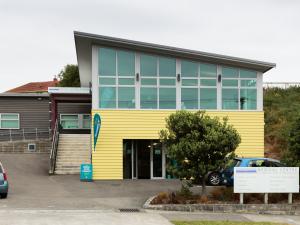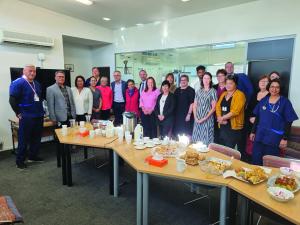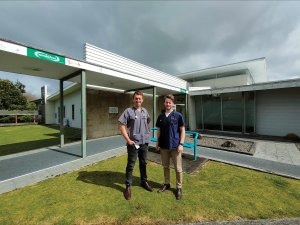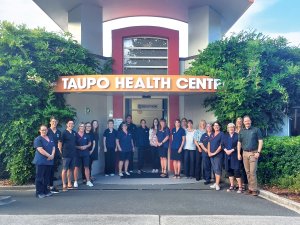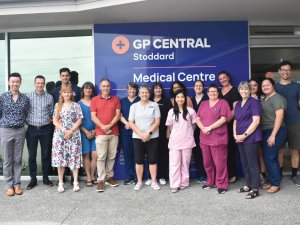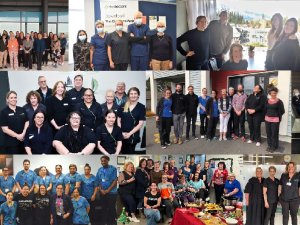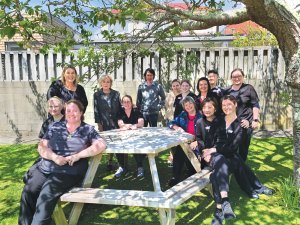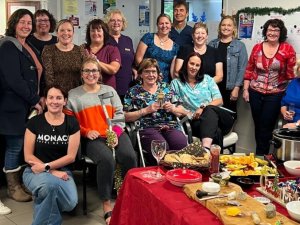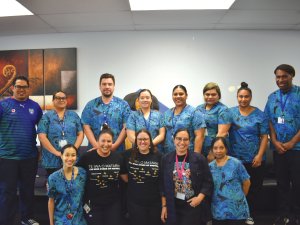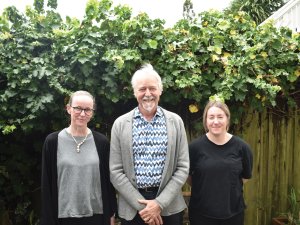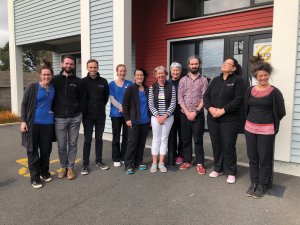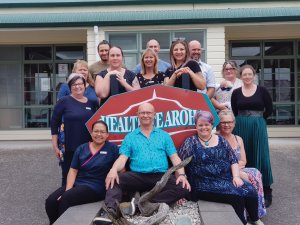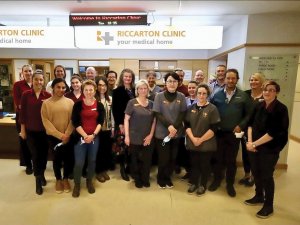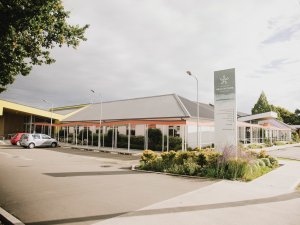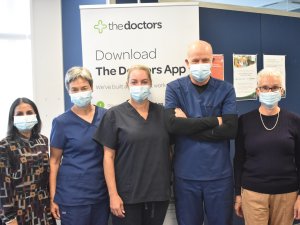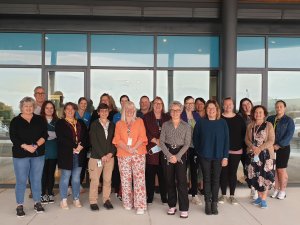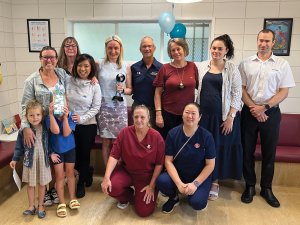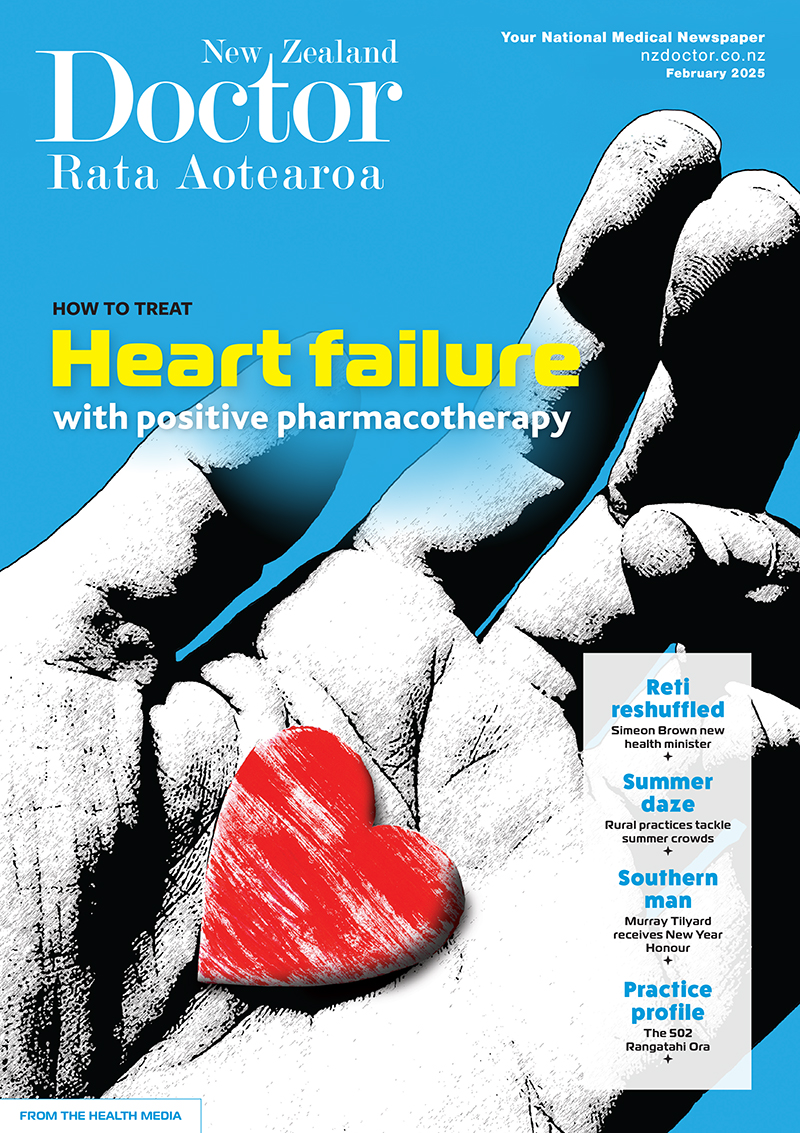Pharmacist prescribers Linda Bryant and Leanne Te Karu discuss positive polypharmacy for heart failure. Current evidence shows the intensive implementation of four medications offers the greatest benefit to most patients with heart failure, with significant reductions in cardiovascular mortality, heart failure hospitalisations and all-cause mortality
Complex cases and community collaboration in Cannons Creek
Complex cases and community collaboration in Cannons Creek
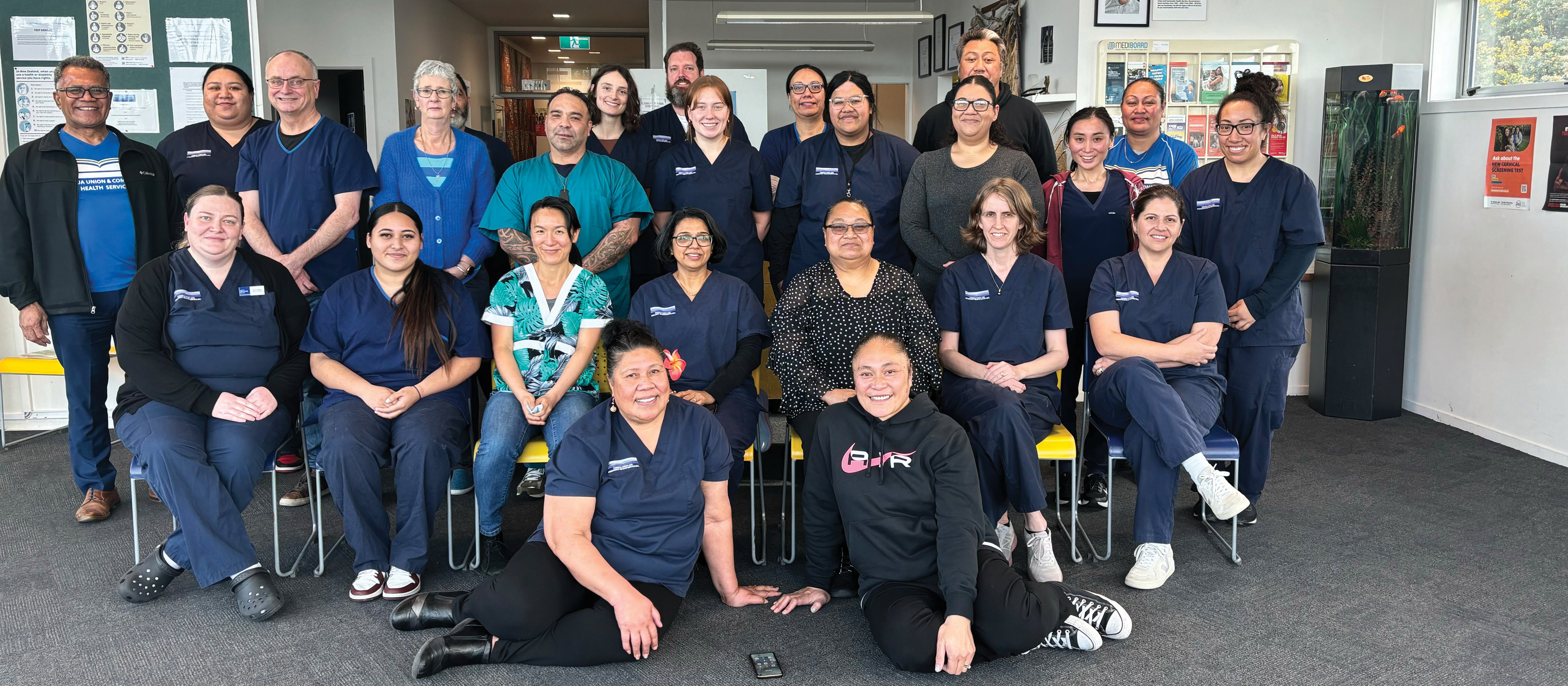
Porirua Union & Community Health Service is bringing health to the heart of the community, writes Zahra Shahtahmasebi
The medicine at Porirua Union & Community Health Service is challenging and complex, but the team’s success stories make it worthwhile.
Located in the suburb of Cannons Creek, the general practice serves a community that is 90 per cent highneeds – its patients have multiple comorbidities and not a lot of spare cash, says specialist GP Bryan Betty.
So PUCHS, as staff fondly refer to it, is driven to make healthcare more accessible to the community.
The practice sees patients who can’t pay for free, brings in specialists for diabetes and cardiology to avoid trips to the hospital and organises regular walking groups and community meetings.
And it works. Specialist GP Sarah Leilua shares stories of the patient who lost so much weight from the walking group that she could come off her diabetes medicine, as well as the visiting paediatric nurse specialist who has massively reduced the rate of childhood eczema.
Established in 1990, PUCHS started life inside an old three-bedroom house with a solo GP at the helm.
Dr Betty has been working there for the past 15 years, picking up locum shifts after he returned to Wellington from Australia in the early 2000s.
After a massive fundraising effort and a change of ownership to become a community-owned not-for-profit, a new purpose-built medical centre was built between 2010 and 2011.
The practice, which has a large reception and 13 consulting rooms, is on Bedford Street, Cannons Creek, just a couple of kilometres from the Porirua city centre and 25km from central Wellington.
Building the new practice is Dr Betty’s proudest moment to date. “It was huge and totally changed our service delivery,” he says.
PUCHS is overseen by a board of trustees and comes under Tū Ora Compass Health PHO, which provides it with Very Low Cost Access funding and capitation.
At maximum, patients will be charged $20 per appointment, but regardless, PUCHS will still see any patient even if they can’t pay then and there. For those who can, paying off any debts over time is possible.
This makes the practice very dependent on the VLCA and capitation funding streams to make ends meet, says Dr Betty, who is also chair of General Practice NZ.
Under the current general practice model, a lot of work goes unfunded, but it must be done to look after the patients. For instance, when community health worker Teau Marama drives patients without transport to Wellington Regional Hospital to ensure they get to their appointments.
“We all know the current funding model isn’t fit for purpose,” Dr Betty adds.
Another challenge is inbox fatigue, which Dr Betty says is becoming a real issue, and he wonders if there’s an AI tool that could help manage it.
“There’s been a noticeable upswing in results – lots of test results and hospital letters. We have a lot of complex patients, and generally, it seems the hospitals are discharging them sooner than before.”
In 2018, PUCHS was one of the first VLCA practices to become a healthcare home, a move that improved efficiencies, especially when the COVID-19 pandemic hit two years later.
The team was already conducting daily stand up meetings, running GP phone triage and had standardised the clinical rooms so practitioners could move seamlessly between them.
Open Monday through Friday, 8:30am to 5pm, PUCHS offers both booked and on-the-day appointments. A nurse on the phone runs triage, and the patient portal Manage My Health is used to manage repeat prescriptions.
Patients can ring the clinic or Healthline after hours; otherwise, a roster of locum GPs provides care between 10pm and 8am at Kenepuru Community Hospital.
For the first time in 30 years, PUCHS has closed its books to enrolling new patients.
The practice population is currently 7000: 50 per cent are Pasifika, 25 per cent are Māori and 6 per cent are New Zealand European. There are high refugee numbers from Colombia, Burma, Cambodia and the Middle East and a good number of Community Services Card holders.
The practice’s catchment area includes the wider Porirua area, including Johnsonville and Paremata, but most patients live close by, says Dr Betty.
PUCHS provides telehealth for the few patients who moved away – up to Ōtaki and Levin – but chose to stay with the practice.
“We only do it for patients we know well due to their complex histories,” Dr Betty says. Trust, relationships and continuity of care are paramount for patients.
That complexity manifests as a high concentration of diabetes, mental health issues, heart disease and smoking, he adds.
Dr Leilua often worries about her patients after she has gone home, wondering if they turned up to their specialist appointments.
“We’ve got a high-risk population, and they present late. Some flat out refuse to do what you tell them.”
For patients, health is not a top priority. But that’s where health coach Uili Te’o comes in – if they miss an appointment, he goes door-knocking to find out why.
“When they see me, they work it out that this must be pretty important,” Mr Te’o says.
Together, they discuss the barriers – transport, work, language – and how the practice can help them.
He also leads the walking group, which runs across eight-week blocks in the summer. At the end, there’s a little graduation ceremony, and members receive a certificate for their participation.
It’s never about how many laps done, but about the connections made along the way, he says.
The impact on patients has been marked – Dr Leilua’s earlier story about the patient’s weight loss is just one example. “It has such a positive impact on whānau mental health and socialisation, especially for those who might feel isolated or are elderly,” she says.
Thanks to community connections, the group continues with monthly meetings at a local church hall throughout winter.
Further links with Cannons Creek School mean practice staff can borrow the school van to transport members to and from activities.
These group sessions also serve as an opportunity to share important health education and messages. This idea was borne after PUCHS attempted to host an evening session on gout at the clinic a couple of years ago.
It didn’t go so well – only the staff turned up.
“But it was good learning that this wasn’t the setting for us; that people probably don’t want to come to the clinic. So, we took health education to the walking group,” says Dr Leilua.
There’s never a day when people aren’t laughing at PUCHS, says clinical coordinator Erin Millar. She has lived in Porirua for a long time and started at the practice as a nurse.
“You get to work with an awesome group of passionate people – the level of care we provide is exceptional, and we have a really cool culture at the clinic of whānau,” Ms Millar says.
Dr Leilua agrees, saying the practice will always stop to celebrate its successes, big or small – as well as its melting pot of cultures – with a shared morning tea or lunch.
The practice has seven part-time GPs, two practice-employed GP registrars, five reception staff, two in the administration team, one practice manager, a paramedic, a community health worker and a cultural worker, who works specifically with the practice’s refugee population.
PUCHS loves its role as a teaching practice – currently, it has two practice-employed registrars and takes on other training of health professionals, including nurses and social workers.
Its eight nurses all champion a different area, from diabetes and respiratory to immunisation, says Ms Millar.
The nurse-led youth clinic is a relatively new initiative that provides free healthcare for young people up to age 24 and connects them to other relevant services, like employment, education and mental health.
The pilot programme for health improvement practitioners and health coaches was run at PUCHS, Ms Millar says, and the practice became one of the first to introduce the scheme officially.
With support from Tū Ora, these roles have developed significantly over time to meet the needs of PUCHS patients better.
Community health worker Ms Marama was the practice’s receptionist over 30 years ago, but her community knowledge made her a real asset in connecting with patients.
Dr Leilua shares the unfortunate story of a patient who passed away in hospital. “No one could track down his family, but Teau jumped on her networks and was able to find a brother who lived locally.”
Like many practices nationwide, PUCHS is short-staffed, especially after two long-serving GPs retired last year. They still haven’t been replaced, with Ms Millar saying it’s been a struggle to fill those senior positions.
But the practice lives and breathes its commitment to bring health to its patients, with specialists and allied health professionals visiting the clinic regularly.
This includes a podiatrist, midwife, pharmacist prescriber, physiotherapist and hearing therapist, as well as a diabetes specialist, a Samoan general medicine consultant, a cardiologist and heart failure specialist, and a paediatric nurse specialist.
“The aim is to bring as much knowledge to the people and the clinic. It’s a space that’s familiar, and they don’t have to travel,” says Ms Millar.
A team of University of Otago researchers are also currently attached to the practice, looking at diabetes – Porirua has three times the national average people with diabetes.
Zahra Shahtahmasebi is an Auckland journalist
- Location: 221 Bedford Street, Cannons Creek, Porirua, Wellington
- PHO: Tū Ora Compass Health
- Staff: seven GPs, two GP registrars, eight nurses, one health improvement practitioner, one health coach, one community health worker, one cultural support worker, five receptionists, two administrators and one practice manager
- Owner: community-owned, not-for-profit
- Enrolled patients: 7000
- Funding: capitation, Very Low Cost Access
We're publishing this article as a FREE READ so it is FREE to read and EASY to share more widely. Please support us and our journalism – subscribe here
One of the benefits of subscribing is you will also be able to share your thoughts about what you read with others in our Comment Stream. You can also take notes on what you read with Capture


